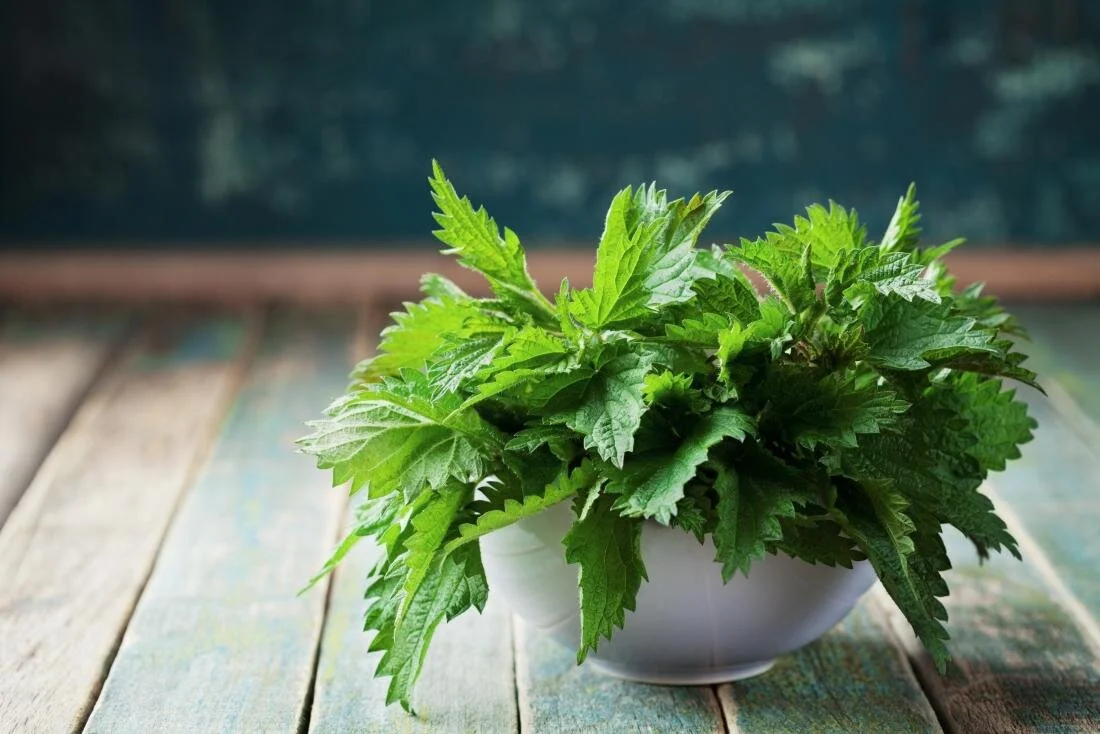Top 10 Herbs For Health and Wellness During Menopause
Connecting with nature and using herbs as medicine has been a part of my health and wellness rituals long before midlife and menopause. Teas, tinctures, and supplements have been my first go-to’s as preventatives as well as healing aids. Yet, as I’ve aged and hit perimenopause some of my tried and trusted treatments weren’t working anymore or at least not to the degree I needed.
Fortunately, I’ve kept my favorite herbal reference books like Herbal Healing For Women by Rosemary Gladstar and The Little Herb Encyclopedia by Jack Ritchason, N.D., close by to help me alter my remedies. Here are my top 10 favorite herbs in midlife…
Black Cohosh
In addition to helping reduce hot flashes, black cohosh may also benefit mental health and prevent unwanted weight gain in menopausal women.
*Precautions: In addition to consulting your doctor first, it is recommended to avoid black cohosh if you have liver disease, are taking any medications that may harm your liver, or if you are pregnant or breastfeeding
2. Eletheuro Root
Eletheuro root is thought to improve memory and thinking skills or cognitive function and also assist to promote positive feelings about midlife. This simple neurological and hormonal booster can be a great source of comfort in an abyss of unknowns for one’s future.
*Precautions: Consult your doctor if you’re pregnant or breastfeeding, have a heart condition, are hormone-sensitive as a result of conditions such as breast cancer, uterine cancer, ovarian cancer, endometriosis, or uterine fibroids, are taking medications for the liver, mental disorder, diabetes, or blood clotting.
“A magical, intangible process, healing is an art, not a science.”
3. Garlic
During midlife we need all the help we can get when it comes to our maintaining healthy cholesterol and blood pressure levels.
In addition to helping slow the hardening of the arteries, garlic can help lower cholesterol levels, reduce systolic blood pressure, reduce pre-meal blood sugar levels, and kill unwanted parasites in the gastrointestinal system.
*Precautions: Consult your doctor for further guidance but specifically if you are pregnant or breastfeeding, have a bleeding disorder, or are scheduled for surgery in the next two weeks
4. Ginkgo Leaf
Much like red clover, ginkgo leaf can raise estrogen levels and thus rebalance hormone levels improving PMS symptoms, moods, and memory while also reducing anxiety often found prevalent during menopause.
*Precautions: Ginkgo leaf is not recommended for those with seizure or bleeding disorders, diabetics, women struggling with infertility, or those allergic to poison ivy, poison oak, poison sumac, mango rind, or cashew shell oil. Also consult your doctor if you are pregnant or breastfeeding before taking ginkgo leaf.
“Every breath you take is a giveaway dance between you and the plants.”
5. Licorice Root
Licorice root is commonly associated with helping to treat eczema symptoms from skin inflammations such as redness, swelling, and itching. But it has also been found to be a great aid to reduce the intensity of hot flashes and menstrual cramps during menopause.
*Precautions: Licorice root should be avoided to those with heart disease, hormone-sensitive conditions such as breast cancer, uterine cancer, ovarian cancer, endometriosis, or uterine fibroids, high blood pressure, hypotonia, low potassium levels, or are due to have surgery within two weeks as licorice can interfere with blood pressure control.
6. Red Clover
Red clover is found to have estrogen-like effects that can help reduce common symptoms of menopause like hot flashes and night sweats while also improving blood flow and reducing clots throughout menstrual cycles.
*Precaution: Do not take or use red clover if you are pregnant, breastfeeding, or are trying to become pregnant as red clover acts like estrogen and could disturb hormonal balances.
7. St. John’s Wort
St. John’s Wort can be helpful to reduce hot flashes and other common symptoms of menopause, but particularly it is beneficial to improve moods related to depression thus decreasing nervousness and tiredness related to depression.
*Precaution: You should avoid St. John’s Wort if you are suffering from bipolar disorder, Alzheimer’s disease, or Schizophrenia, or also if you are scheduled to undergo surgery within two weeks as St. John’s Wort can affect serotonin levels in the brain.
“Our food should be our medicine. Our medicine should be our food.”
8. Stinging Nettle
Considered a natural antihistamine, stinging nettle can help ease the discomforts of inflammation in itchy or irritable skin as well as achy joints that can flare up during menopause.
*Precaution: Consult your doctor before taking stinging nettles if you are pregnant or breastfeeding or have low blood pressure, difficulty maintaining steady blood sugar levels, or are prone to allergies to plants from the same family.
9. Valerian Root
While early research found valerian root to be helpful in reducing menstrual cramps as well as emotional, physical and psychological symptoms associated with pms, it’s also been credited to reduce hot flashes and improve sleep quality for those suffering with sleep disturbances and insomnia during menopause.
*Precautions: It is recommended to consult your doctor if you’re pregnant and/or breastfeeding before taking valerian root.
10. Vitex Berry
Studies have found vital berries to assist in the balance of hormones during pms, menstrual cycles and menopause minimizing moodiness and reducing depression and anxiety and headaches.
*Precautions: Since vitex can interfere with hormones it is not recommended to take it without consulting your doctor if you are pregnant or breastfeeding, have a hormone-sensitive condition such as breast cancer, uterine cancer, ovarian cancer, endometriosis, or uterine fibroids, have been diagnosed with Parkinson’s disease, are undergoing fertility treatments, or are currently taking psychiatric medications for a mental disorder.
Share this:













